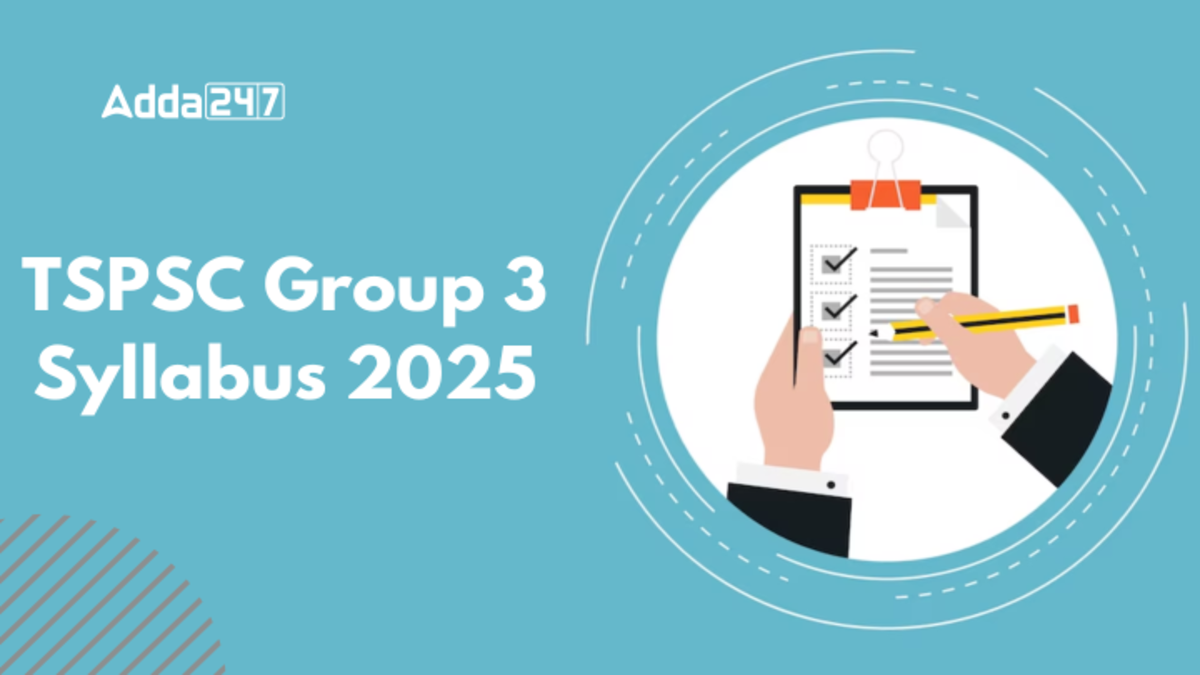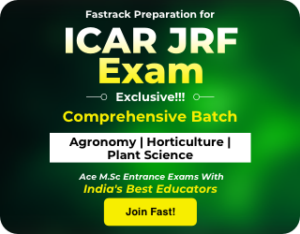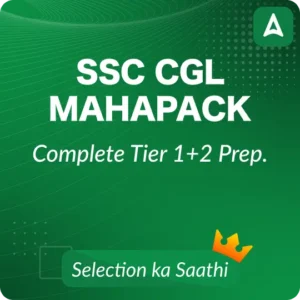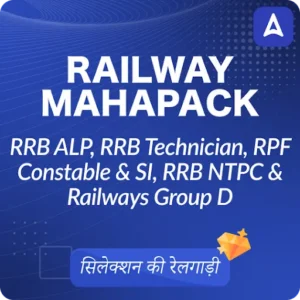The Telangana State Public Service Commission (TSPSC) is expected to conduct the TSPSC Group 3 Exam 2025 soon at various centers in the state. Candidates aspiring to appear for the exam are encouraged to go through the TSPSC Group 3 Syllabus and Exam Pattern to plan their preparation effectively. The TSPSC Group 3 exam consists of three papers, and we have provided a detailed overview of the syllabus for each paper below. To further support your preparation, you can also download the complete syllabus PDF available at the end of this page.
TSPSC Group 3 Syllabus 2025
The TSPSC Group 3 Syllabus and Exam Pattern serve as essential tools to help candidates concentrate on the key topics relevant to the examination. The syllabus is divided into three main papers:
- Paper 1 – General Studies and General Abilities
- Paper 2 – History, Polity, and Society
- Paper 3 – Economy and Development
The Telangana State Public Service Commission (TSPSC) has officially released the TSPSC Group 3 Syllabus 2025 for the recruitment of eligible candidates for various posts, including:
- Junior Assistant in the Backward Classes Welfare Department
- Junior Assistant in the Office of the Transport Commissioner
- Typist in the Home Department
- Junior Stenographer in the Intelligence Department
- And several other roles
A thorough understanding of the syllabus is crucial, as it forms the foundation for a well-structured preparation plan. This article provides a detailed overview of the TSPSC Group 3 Syllabus and Exam Pattern to help aspirants prepare effectively for the upcoming TSPSC Group 3 Exam 2025.
TSPSC Group 3 Result 2025 Out, Provisional Selection List
TSPSC Group 3 Syllabus and Exam Pattern 2025
The TSPSC Group 3 Exam 2025 is being conducted to fill a range of vacancies across various departments under Group-III Services in Telangana. While the official exam dates are yet to be announced, candidates are advised to begin their preparation early. The TSPSC Group 3 Syllabus covers a broad spectrum of subjects, including: General Studies and General Abilities, History, Polity & Society, Economy & Development. Aspirants can refer to the detailed syllabus overview provided in the table below to better understand the topics and structure of the exam.
| TSPSC Group 3 Syllabus 2025 | |
| Conducting Body | Telangana State Public Service Commission |
| Exam Name | TSPSC Group 3 Exam 2025 |
| Vacancy | – |
| Category | Syllabus |
| Exam Level | State-level |
| TSPSC Group 3 Exam Date 2025 | TBA |
| TSPSC Group 3 Hall Ticket 2025 | TBA |
| Marking Scheme | 1 mark |
| Negative Marking | No negative marking |
| Selection Process | Offline Written test and Interview |
| Official Website | tspsc.gov.in |
TSPSC Group 3 Selection Process 2025
The selection process for the TSPSC Group 3 Exam 2025 consists of two stages:
- Offline Written Examination
- Interview
Candidates who qualify in the written examination will be shortlisted for the interview stage. The shortlisting will follow a 1:2 ratio with respect to the total number of available vacancies. The final selection will be based on the combined performance of candidates in both the written test and the interview.
TSPSC Group 3 Exam Pattern 2025: Written Test
The TSPSC Group 3 Exam is divided into three papers: Paper 1, Paper 2, and Paper 3. Each paper consists of 150 multiple-choice questions, with each question carrying 1 mark, making a total of 150 marks per paper. The duration for each paper is 150 minutes. The exam will be conducted in three languages: English, Telugu, and Urdu. Here is the detailed TSPSC Group 3 Exam Pattern 2025:
| Paper | Type of Test | Subjects | Total Questions | Marks | Duration |
| Paper I | Objective | General Studies and General Abilities | 150 | 150 | 150 minutes |
| Paper II | History, Polity, and Society | 150 | 150 | 150 minutes | |
| Paper III | Economy and Development | 150 | 150 | 150 minutes | |
| Total | 450 | 450 | 450 Minutes | ||
Candidates are selected based on their merits and the marks obtained in the examination, culminating in a personal interview.
TSPSC Group 3 Syllabus 2025: Paper-wise
TSPSC Group 3 examination consists of three papers:
- Paper I – General Studies and General Abilities
- Paper – II – History, Polity, and Society
- Paper-III – Economy and Development
TSPSC Group 3 Syllabus for Paper I General Studies and General Abilities
- Current Affairs – Regional, National & International.
- International Relations and Events.
- General Science: India’s Achievements in Science and Technology.
- Environmental Issues; Disaster Management- Prevention and Mitigation Strategies.
- World Geography, Indian Geography, and Geography of Telangana State.
- History and Cultural Heritage of India.
- Society, Culture, Heritage, Arts, and Literature of Telangana.
- Policies of Telangana State.
- Social Exclusion, Rights Issues and Inclusive Policies.
- Logical Reasoning, Analytical Ability, and Data Interpretation.
- Basic English. (8th Class Standard)
TSPSC Group 3 Syllabus for Paper II: History, Polity, and Society
- Socio-Cultural History of Telangana and Formation of Telangana State.
- Satavahanas, Ikshvakus, Vishnukundins, Mudigonda and Vemulawada Chalukyas and their contribution to culture; Social and Religious conditions; Buddhism and Jainism in Ancient Telangana; Growth of Language and Literature, Art and Architecture.
- The establishment of the Kakatiya kingdom and its contribution to socio-cultural development. Growth of Language and Literature under the Kakatiyas; Popular protest against Kakatiyas: Sammakka – Sarakka Revolt; Art, Architecture and Fine Arts. Rachakonda and Deverakonda Velamas, Social and Religious Conditions; Growth of Language and Literature, Socio-Cultural contribution of Qutubshahis – Growth of Language, Literature, Art, Architecture, Festivals, Dance, and Music. Emergence of Composite Culture.
- Asaf Jahi Dynasty; Nizam-British Relations: Salarjung Reforms and their impact; Socio – Cultural- Religious Conditions under the Nizams: Educational Reforms, Establishment of Osmania University; Growth of Employment and the Rise of Middle Classes.
- Socio-cultural and Political Awakening in Telangana: Role of Arya Samaj-Andhra Mahasabha; Andhra Saraswatha Parishat, Literary and Library movements, Adi-Hindu movement, Andhra Mahila Sabha and the growth of Women’s movement; Tribal Revolts, Ramji Gond and Kumaram Bheem, -The Telangana Peasant Armed Struggle; Causes and Consequences.
- Integration of Hyderabad State into the Indian Union and the formation of Andhra Pradesh. Gentlemen Agreement; Mulki Movement 1952-56; Violation of Safeguards – Regional imbalances – Assertion of Telangana identity; Agitation for Separate Telangana State 1969-70 – Growth of popular protest against discrimination and movements towards the formation of Telangana State 1971-2014.
Overview of the Indian Constitution and Politics.
- Evolution of the Indian Constitution – Nature and salient features – Preamble.
- Fundamental Rights – Directive Principles of the State Policy – Fundamental Duties.
- Distinctive Features of the Indian Federalism – Distribution of Legislative, Financial, and Administrative Powers between the Union and States.
- Union and State Government – President, Prime Minister and Council of Ministers; Governor, Chief Minister and Council of Ministers – Powers and Functions.
- Indian Constitution: Amendment Procedures and Amendment Acts.
- Rural and Urban Governance with special reference to the 73rd and 74th Amendment Acts.
- Electoral Mechanism: Electoral Laws, Election Commission, Political Parties, Anti-defection Law, and Electoral Reforms.
- Judicial System in India – Judicial Review; Judicial Activism; Supreme Court and High Courts.
- a) Special Constitutional Provisions for Scheduled Castes, Scheduled Tribes, Backward Classes, Women, Minorities, and Economically Weaker Sections (EWS).
- b) National Commissions for the Enforcement – National Commission for Scheduled Castes, Scheduled Tribes, Backward Classes, Women, Minorities, and Human Rights.
- National Integration issues and challenges: Insurgency; Internal Security; Inter-State Disputes.
Social Structure, Issues and Public Policies.
- Indian Social Structure: Salient Features of Indian society: Family, Marriage, Kinship, Caste, Tribe, Ethnicity, Religion, and Women.
- Social Issues: Inequality and Exclusion: Casteism, Communalism, Regionalism, Violence against Women, Child Labour, Human trafficking, Disability, Aged and Third / Trans-Gender Issues.
- Social Movements: Peasant Movement, Tribal movement, Backward Classes Movement, Dalit Movement, Environmental Movement, Women’s Movement, Regional Autonomy Movement, Human Rights / Civil Rights Movement.
- Social Policies and Welfare Programmes: Affirmative Policies for SCs, STs, OBC, Women, Minorities, Labour, Disabled and Children; Welfare Programmes: Employment, Poverty Alleviation Programmes; Rural and Urban, Women and Child Welfare, Tribal Welfare.
- Society in Telangana: Socio- Cultural Features and Issues in Telangana; Vetti, Jogini, Devadasi System, Child Labour, Girl Child, Flourosis, Migration, Farmer’s; Artisanal and Service Communities in Distress.
TSPSC Group 3 Syllabus for Paper III: Economy and Development
- Indian Economy: Issues and Challenges
- Demography: Demographic Features of Indian Population – Size and Growth Rate of Population – Demographic Dividend – Sectoral Distribution of Population – Population Policies of India
- National Income: Concepts & Components of National Income – Measurement Methods – National Income Estimates in India and its Trends – Sectoral Contribution – Per Capita Income
- Primary and Secondary Sectors: Agriculture and Allied Sectors – Contribution to National Income – Cropping Pattern – Agricultural Production and Productivity – Green Revolution – Irrigation – Agricultural Finance and Marketing – Agricultural Pricing – Agricultural Subsidies and Food Security – Agricultural Labour – Growth and Performance of Allied Sectors
- Industry and Services Sectors: Growth and Structure of Industry in India – Contribution to National Income –Industrial Policies – Large Scale Industries – MSMEs – Industrial Finance – Contribution of Services Sector to National Income – Importance of Services Sector – Sub Sectors of Services – Economic Infrastructure – India’s Foreign Trade
- Planning, NITI Aayog and Public Finance: Objectives of India’s Five Year Plans – Targets, Achievements and Failures of Five Year Plans – NITI Aayog – Budget in India – Concepts of Budget Deficits – FRBM – Recent Union Budgets – Public Revenue, Public Expenditure and Public Debt – Finance Commissions
Economy and Development of Telangana
- Structure and Growth of Telangana Economy: Telangana Economy in Undivided Andhra Pradesh (1956-2014) – State Finances (Dhar Commission, Wanchu Committee, Lalit Committee, Bhargava Committee) – Land Reforms – Growth and Development of Telangana Economy Since 2014 – Sectoral Contribution to State Income – Per Capita Income
- Demography and HRD: Size and Growth Rate of Population – Demographic Features of Telangana Economy – Age Structure of Population – Demographic Dividend.
- Agriculture and Allied Sectors: Importance of Agriculture – Trends in Growth Rate of Agriculture – Contribution of Agriculture and Allied Sectors to GSDP/GSVA – Land Use and Land Holdings Pattern – Cropping Pattern – Irrigation – Growth and Development of Allied Sectors – Agricultural Policies and Programmes
- Industry and Service Sectors: Structure and Growth of Industry – Contribution of Industry to GSDP/GSVA – MSME – Industrial Policies – Components, Structure and Growth of Services Sector – Its Contribution to GSDP/GSVA – Social and Economic Infrastructure
- State Finances, Budget and Welfare Policies: State Revenue, Expenditure and Debt – State Budgets – Welfare Policies of the State
Issues of Development and Change
- Growth and Development: Concepts of Growth and Development – Characteristics of Development and Underdevelopment – Measurement of Economic Growth and Development – Human Development – Human Development Indices – Human Development Reports
- Social Development: Social Infrastructure – Health and Education – Social Sector – Social Inequalities – Caste – Gender – Religion – Social Transformation – Social Security
- Poverty and Unemployment: Concepts of Poverty – Measurement of Poverty – Income Inequalities – Concepts of Unemployment – Poverty, Unemployment and Welfare Programmes
- Regional Inequalities: Urbanization – Migration – Land Acquisition – Resettlement and Rehabilitation
- Environment and Sustainable Development: Concepts of Environment – Environmental Protection and Sustainable Development – Types of Pollution – Pollution Control – Effects of Environment – Environmental Policies of India
TSPSC Group 3 Syllabus PDF Download
The TSPSC Group 3 Syllabus PDF offers a comprehensive outline of the subjects included in the exam, such as General Studies, General Abilities, and Secretarial Abilities. The syllabus covers a wide range of topics, including Telangana’s history, geography, polity, current affairs, logical reasoning, basic English, and numerical aptitude. Downloading the syllabus PDF helps candidates gain a complete understanding of all topics, enabling them to plan and structure their preparation effectively for each section of the exam.
Last Minute Preparation Tips for TSPSC Group 3 Exam 2025
Candidates appearing for the TSPSC Group 3 Exam 2025 are advised to follow these last-minute preparation tips to maximize their performance:
- Revise Key Concepts and Formulas: Focus on essential concepts, important formulas, and high-weightage topics. Prioritize subjects where you feel most confident and can score easily.
- Take Mock Tests: Attempt full-length mock tests to simulate the actual exam environment. This will help improve your time management and accuracy. Try to complete each test within the allotted time frame.
- Go through the Previous Year Papers: Reviewing past question papers can give valuable insight into commonly asked questions, important topics, and the exam’s difficulty level.
- Use Summaries and Short Notes: Revise using summaries, short notes, or mnemonics you’ve prepared. These quick reviews can help reinforce important information efficiently.
- Avoid New Topics: Steer clear of starting any new topics at the last minute, as it can lead to confusion and stress. Stick to revising what you already know.
- Time Management Strategy: Plan how much time to allocate to each section. Don’t spend too long on difficult questions—move on and return to them later if time permits.
- Stay Calm and Take Breaks: Maintain a calm and positive mindset. Take short breaks during study sessions to prevent burnout. Practice deep breathing or light stretching to stay relaxed.
- Be Punctual on Exam Day: Arrive at the exam center at least 30 minutes before the reporting time to avoid any last-minute rush or anxiety.
- Keep Essentials Ready: Ensure you carry all necessary items, including your admit card, a valid ID proof, and required stationery.



 Rajasthan LDC Syllabus and Exam Pattern,...
Rajasthan LDC Syllabus and Exam Pattern,...
 UP Lekhpal Syllabus and Exam Pattern 202...
UP Lekhpal Syllabus and Exam Pattern 202...
 TNPSC Group 3 Syllabus 2026 and Exam Pat...
TNPSC Group 3 Syllabus 2026 and Exam Pat...




 Adda247 Job portal has complete information about all Sarkari Jobs and Naukri Alerts, its latest recruitment notifications, from all state and national level jobs and their updates.
Adda247 Job portal has complete information about all Sarkari Jobs and Naukri Alerts, its latest recruitment notifications, from all state and national level jobs and their updates.



